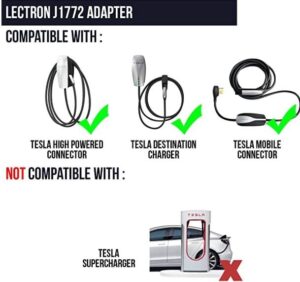Can a car run without a battery once started? The answer may surprise you. While the battery plays a crucial role in starting the engine, providing power to electrical systems, and recharging during operation, it is not the sole source of power once the car is running. In fact, once the engine is running, the alternator takes over the responsibility of providing electricity to the various components of the vehicle. So, while a car may not run without a battery initially, it is possible for it to continue running without one once the engine has been started. Curious to know more? Let’s dive deeper into how this fascinating process works.
Can A Car Run Without A Battery Once Started
When it comes to the functionality of a car, the battery plays a crucial role. It provides the necessary electrical power to start the engine, operate the lights, power the infotainment system, and keep various electrical components running smoothly. But what happens if the battery dies or is removed while the car is running? Can a car continue to run without a battery once it has been started? In this article, we will explore this intriguing question in detail and shed light on the various aspects related to a car running without a battery.
How Does a Car Battery Work
Before diving into whether a car can run without a battery, it’s essential to understand how a car battery functions. A car battery is a rechargeable storage device that stores electrical energy delivered by the alternator. It consists of a series of lead plates submerged in an electrolyte solution, which facilitates the chemical reactions necessary for energy storage and release. The battery’s primary function is to provide the electrical power required to start the engine, as well as power other electrical systems when the engine is not running or the alternator isn’t producing sufficient current.
The alternator, powered by the engine’s mechanical energy, generates electricity and simultaneously charges the battery. This cycle ensures a constant supply of electrical power to the car’s systems, allowing them to function properly.
The Importance of a Battery for Starting a Car
The battery plays a vital role in starting a car’s engine. When you turn the ignition key, the battery sends a burst of electrical energy to the starter motor, which then cranks the engine. This process initiates the combustion cycle, allowing fuel and air to enter the engine’s cylinders, creating the necessary power to keep the engine running.
Additionally, the battery provides power to the car’s ignition system, which includes the spark plugs. The spark plugs create the spark needed to ignite the air-fuel mixture in the cylinders, further enabling the engine to run smoothly.
Can a Car Run Without a Battery Once Started
Now, let’s address the core question: can a car run without a battery once it has been started? The answer to this question depends on various factors, including the type of car and its electrical system.
Older Vehicles with Mechanical Ignition Systems
In older vehicles equipped with mechanical ignition systems, it is possible for the car to continue running without a battery. These systems rely on a set of points to control the timing of the spark plugs. Once the engine is running, the mechanical ignition system operates independently of the battery.
However, it’s important to note that the battery still serves a crucial function in these vehicles, as it powers the lights, radio, and other electrical components when the engine is not running. So while the car may still run, removing the battery can result in the loss of these auxiliary systems.
Modern Vehicles with Electronic Ignition Systems
Most modern vehicles are equipped with electronic ignition systems and rely heavily on electrical power to function properly. In these cars, removing the battery while the engine is running will typically result in the vehicle stalling immediately. The electronic ignition system, fuel injection system, and other critical components require a stable source of electrical power, which the battery provides.
While some modern cars have voltage regulation systems that can sustain the electrical needs of the vehicle momentarily, removing the battery will eventually cause the car’s systems to shut down.
Consequences of Removing the Battery
Removing the battery while the engine is running can have several negative consequences. Here are a few of the potential issues that may arise:
- The vehicle may stall immediately, resulting in a sudden loss of power and control.
- The electronic ignition system may fail, causing the engine to stop running.
- The fuel injection system may malfunction, leading to engine misfires or a complete shutdown.
- The power steering and brake boost systems may stop functioning correctly, making it difficult to control the vehicle.
- The lights, infotainment system, and other electrical components will cease to operate.
Overall, removing the battery while the engine is running is not recommended and can pose safety risks.
Alternative Power Sources
While a car may not run without a battery once started, there are alternative power sources that can help keep the vehicle running in emergency situations or when the battery is dead. Here are a few examples:
- Jump-starting: Using jumper cables or a portable jump starter, you can connect your dead battery to another vehicle’s battery to start your car. Once started, the alternator will recharge the battery.
- Running the engine: If you have a weak or dying battery, you can keep the engine running by continuously driving the car. The alternator will supply sufficient power to the electrical systems, allowing you to reach your destination or a safe location.
- External power source: Some vehicles have an auxiliary power outlet or USB ports that can be used to power essential devices or charge a dead phone. While this won’t sustain the entire electrical system, it can provide temporary power for certain functions.
It’s important to remember that these alternative power sources are temporary and should not be seen as permanent solutions. It is always recommended to have a fully charged battery to ensure the safe and proper functioning of your vehicle.
In Conclusion
While it is technically possible for some older vehicles to run without a battery once started, modern cars heavily rely on electrical power and will likely stall if the battery is removed. Removing the battery while the engine is running can have serious consequences, including a loss of power, control, and functionality of essential systems.
If your car’s battery is dead or dying, it is always best to seek professional assistance or employ alternative power sources, such as jump-starting or running the engine, to keep your vehicle operational temporarily. Remember to prioritize safety and address any battery issues promptly to ensure a hassle-free driving experience.
Frequently Asked Questions
Can a car run without a battery once started?
Yes, a car can run without a battery once it has been started. However, the battery plays a crucial role in powering the various electrical systems in the car, so the car may not function optimally without a battery.
What happens if the battery dies while driving?
If the battery dies while driving, the car will usually continue running for a short period as long as it has enough momentum. However, once the car comes to a stop, it will not be able to restart without a functioning battery or an alternate power source.
Can a car’s alternator keep it running without a battery?
No, a car’s alternator cannot keep it running without a battery. The alternator is responsible for recharging the battery and powering the car’s electrical systems while the engine is running. Without a battery, the alternator cannot supply power to these systems.
Why does a car need a battery if the alternator provides power?
A car needs a battery because the alternator alone cannot supply enough power to meet all the electrical demands of the car. The battery acts as a storage device, providing power when the alternator cannot produce enough, such as when the engine is off or the electrical systems require more power than the alternator can supply.
Can a car’s engine charge the battery while driving?
Yes, a car’s engine can charge the battery while driving. The alternator is driven by the engine and is responsible for replenishing the battery’s charge. As the engine runs, the alternator generates electricity and directs it to the battery, keeping it charged.
Final Thoughts
A car can run without a battery once started, thanks to the alternator. The alternator is responsible for generating electricity while the engine is running, which powers the car’s electrical systems and charges the battery. However, if the battery is missing or dead, the car may not start in the first place. Once started, the alternator takes over, providing power to keep the car running. So, while the battery is essential for starting the car, it is not necessary for the car to continue running once the engine is started. Can a car run without a battery once started? Yes, it can.



